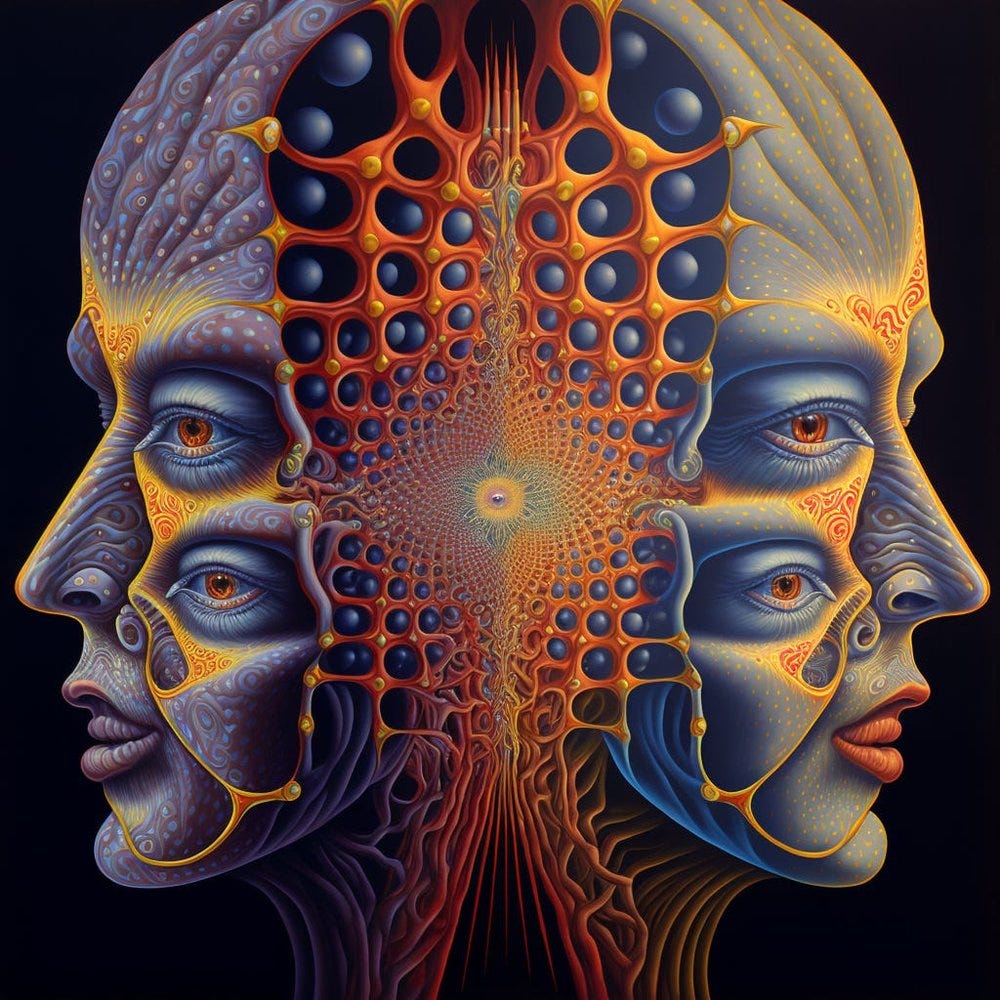Ego death at work

My longest job transition was thirteen months. Thirteen months of making hires and running initiatives and building teams while knowing I had one foot out the door.
Only a few people were in the know. When I finally announced my departure and people heard how long the transition was, they often said, “That must have been torture!” It wasn’t. In fact, it felt more like enlightenment.
Thirteen months earlier, as soon as I told the CEO I wanted to leave — “Poof!” I was gone. Problems where I’d been the solution now needed to be solved differently. Problems where I’d been the problem suddenly had a clearer path to resolution. Basic facts of work life that I hadn’t even considered problems now revealed themselves as such. I saw things differently.
I wasn’t wholly me anymore in the sense that I no longer could think of myself as Andrew Bartholomew, SVP of Strategy, manager of team X and team Y and manager of person A and person B. Instead I was just a placeholder. I was an aware but temporary piece of a system that would outlive me. I was now outside both the daily and the existential questions of my work, looking in. And it was obvious: “It’s going to be okay.”
After taking some time off — less than I’d expected, since my wife and I had been planning to leave for a year of travel in March 2020 and Covid had other ideas — I returned to a full time gig. But I hadn’t shaken the permanent impression the last transition experience had left on me. I was now an organizational systems person more than a manager. I constantly flipped back and forth between being an actor and being an observer. And I realized, wearing my observer hat, that I wasn’t the right person for this new job. It was an inconvenient conclusion: Time to leave again.
Perhaps more inconvenient was the fear that this observer mindset had overtaken my instincts to act. Maybe they couldn’t coexist. But I’m a really good observer, I thought to myself. How could I make the most of that?
Rather than manage the tension, I split the two mindsets apart. I left full-time in-house work and became an indie consultant. In one realm, I’m an actor: I work to find clients and grow my business and try new tactics. In the other realm, I’m an observer: I help clients see what is happening in their businesses, diagnosis causes, and test solutions.
I use the voice that first appeared in my head when I started that 13 month transition. I say, “Step outside this dynamic we’re discussing and just observe it. Ask, ‘What role am I playing? What would the dynamic be if I were not here?’ Imagine removing yourself, then re-introducing yourself. What role would you play? How would it be different? Now…just do that.”
The consulting work feels in some ways like a mindfulness meditation practice. I sit with my clients and we watch the organizations’ thoughts stream past. We label them and keep watching. We ask: “Where did this come from? Where did that come from?” Then we get to work making changes. This observer mindset can be incredibly useful for organizations, and it’s helpful to keep it separate from, and as a complement to, the day-to-day actor mindset.
I’m not advocating for a thirteen-month transition. It’s way too long. But the mindset of a 13-month transition: That I can recommend.
Here are some of the questions I found myself asking as a full-timer that might be useful:
What would my role look like if I weren’t there? Would it even exist?
How does the system work and where do I fit within it?
How could I redesign the system that surrounds me if I were on the outside?
How is my presence an obstacle?
Imagine I don’t exist. Imagine the work gets done. Imagine the work gets done better. How did this happen?
These questions don’t live just at work, either. I’ve become a much more self-observant person, in ways large and small. It’s helped me try to bring my true self into alignment with the world around me. I’m grateful for that.



